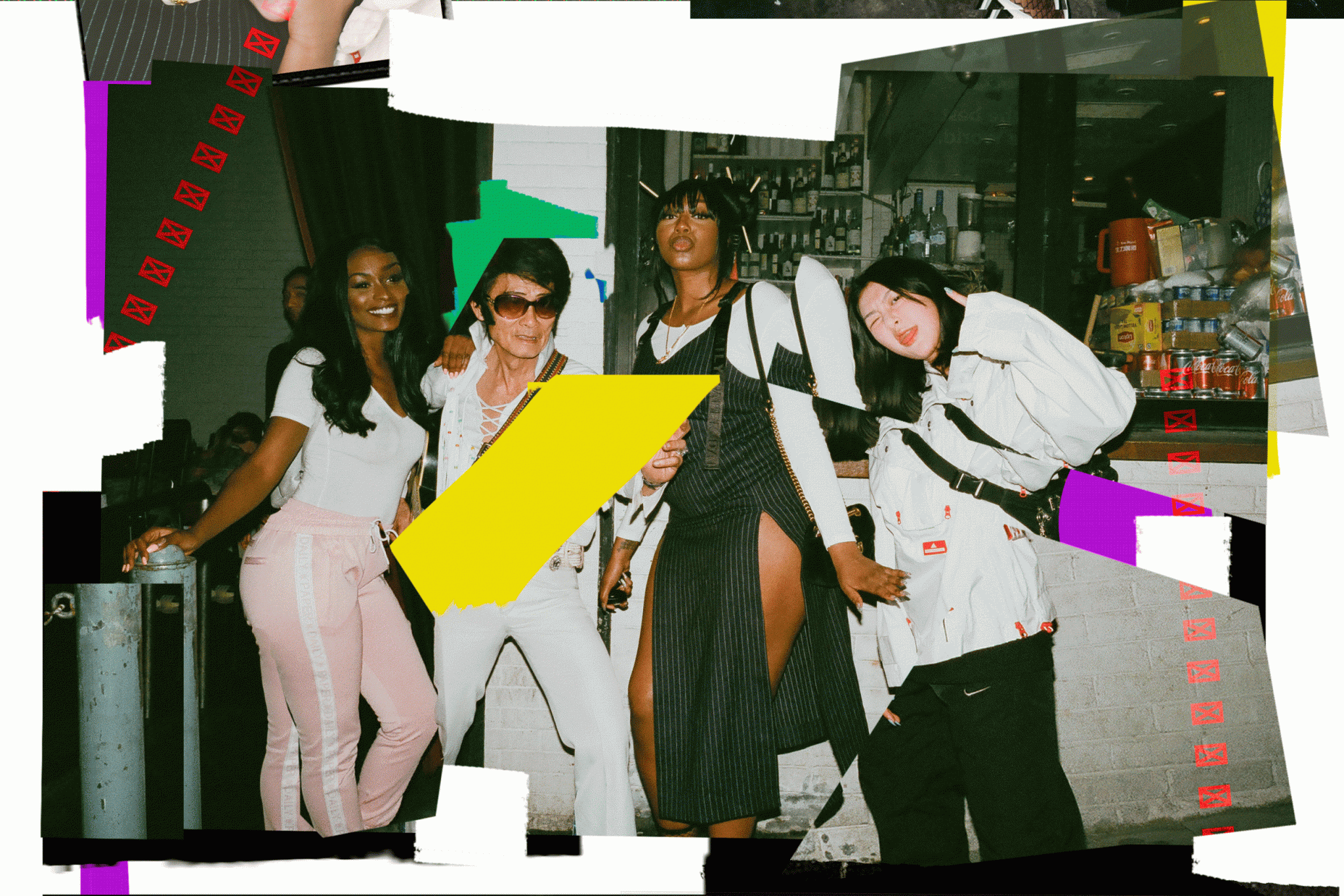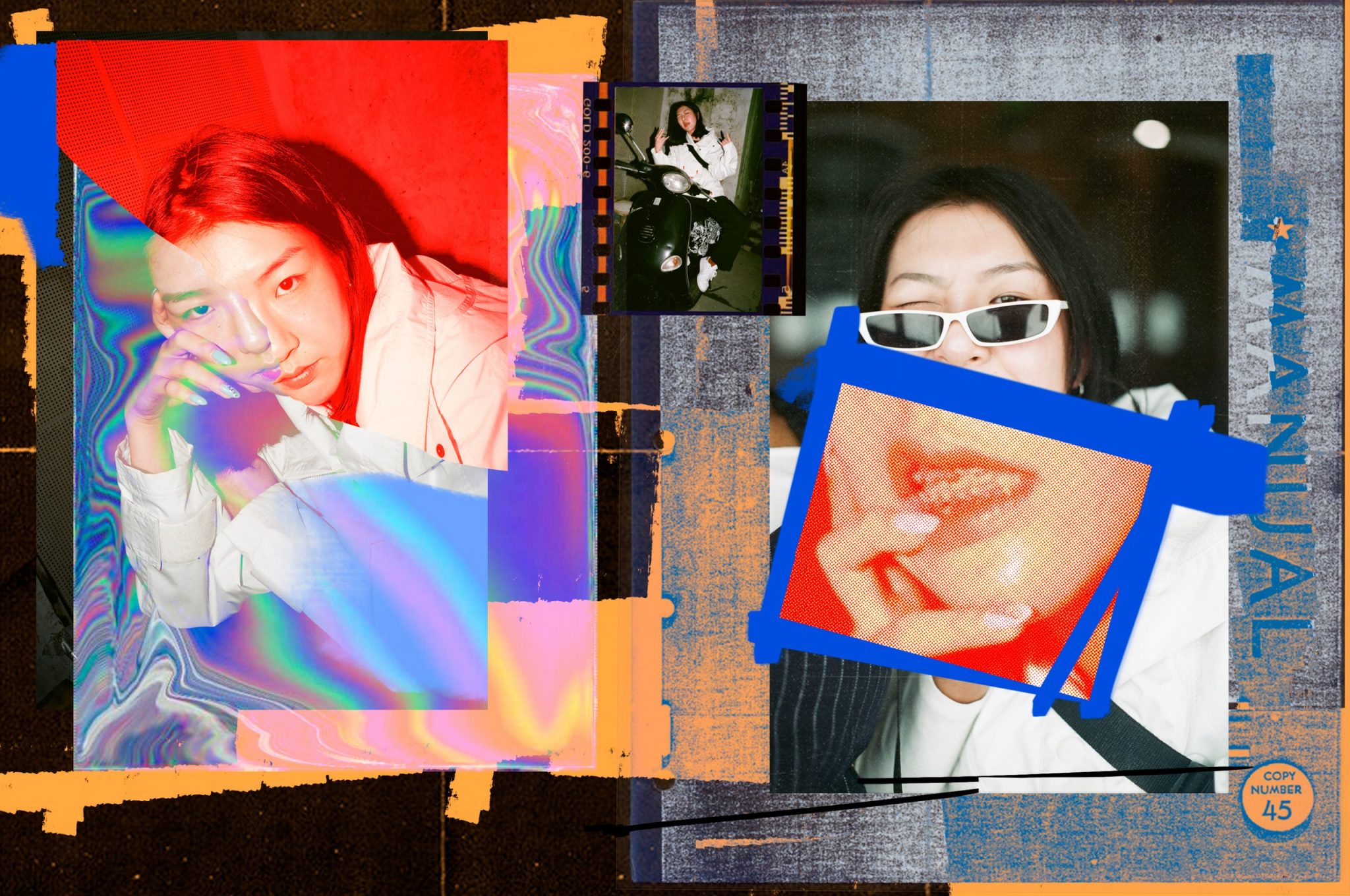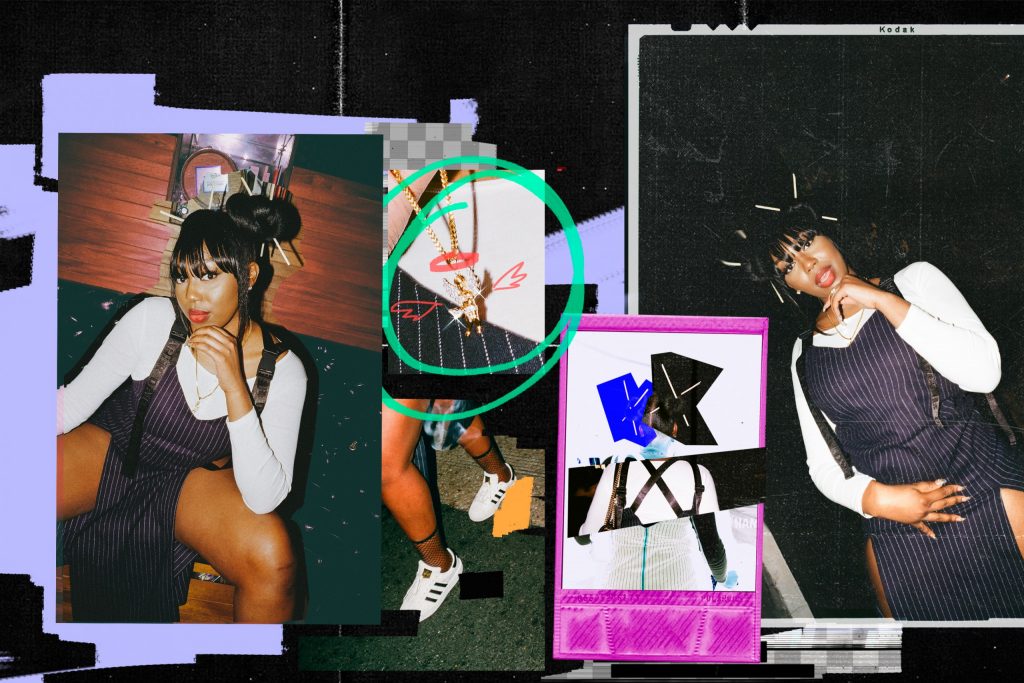As a native of Hong Kong, I’m confronted with the duplicity of being a creative in a market full of opportunity, but with little structure to support it. Hong Kong is vexing in that it’s a globalized financial and cultural center similar to New York and London, but unlike those cities, it still lacks on the cultural front.
The underground creative industry, far removed from the fine art and luxury fashion arenas Hong Kong has long been renowned for, is young. The city’s imagination is often limited by a cultural attachment to convenience at the expense of passion. The overwhelming problem of exorbitant rent benefits the landlords only, and an archaic system makes innovation difficult. And yet, artists are fighting, and optimism remains. Each works towards unlocking the city’s full creative potential.
Equidistant is about connection. It’s about local creative acts connecting with international trailblazers to converse of the differences and similarities. Creativity improves as its practiced, but there are external factors that can make an artist’s journey easier, and the specific details of the environments artists grow in nurture different kinds of talent. In the end, every maker is drawing closer to their visions of accomplishment, whatever the end goal looks like. This series investigates the kinds of journeys possible, both in Hong Kong and abroad.

Laiki is a young talented artist making waves in Hong Kong. She’s bold and was accelerated into the limelight in Hong Kong and China after releasing a music video featuring well-known rapper Young Queenz. She’s been scorned – likened to a 廢青 “fai ching” (the stereotypical dropkick youth without a goal for the future) by media, and she doesn’t fit easily into any prescribed boxes. None of this is unusual for a performer courting controversy, but in Hong Kong, the combination makes her a standout.
Laiki’s story is representative of the growing dissent that many Hong Kong youths feel. This generation of young people was in their last year of high school when the Umbrella Movement was in full swing. These young people have had a taste of what it’s like to desire change and put those desires into action. Three and a half years later, ‘leaders’ continue to pretend that everything’s fine while the system is cracking, resulting in a growing dissent that has the potential to result in rebellion.
How did Laiki turn to hip-hop in a place where hip-hop culture, if not completely absent, certainly isn’t modeled?
Over dinner at Happy Paradise, run by May Chow, Asia’s best female chef and herself a Hong Kong icon, I got to understand the young Cantonese maverick’s thinking better. Laiki explained her feelings towards societal expectations, “After Occupy I really tried to live my life, experience many things in Hong Kong and start at the bottom. After this, I got a lot of feelings about how people live here. When you study art you’re not supposed to stay in your home; you have to go out to see the world. Otherwise it’s pointless.”
“In Hong Kong people just think girls have to be a wife, marry a good man. This is bullshit to me. I think I am not happy with this. I don’t want to be a wife, and cook, and have the same life every day. And nothing happens to me, and I just care for my dad. That’s not going to happen to me. Not everyone needs to be a wife.”
The Hong Kong perception of success still largely defines success by material wealth and corporate ascension. If you’ve not worked at white collar’s big five (Ernst & Young, Deloitte & Touche, Arthur Andersen, KPMG, PricewaterhouseCoopers), and bought a flat, you’ve failed from a Hong Kong standard.
Laiki wasn’t satisfied with following the typical route to success. “After I graduated high school I had two years that I didn’t know what I was doing. Take part-time jobs, try to survive. Then I went to university and dropped out, and I am trying so hard just to survive. But I think after two years it just became obvious that it’s not working.”
“Then I thought, why don’t I do something just for myself, not for others.”
— Fotan Laiki
Still, Loud’s Kylie Lee dubbed Laiki the “accidental star” of Hong Kong’s lost generation. She became a public figure when YoungQueenz, one of the city’s biggest rappers, reached out to her to perform with him at Clockenflap. YoungQueenz recognized Laiki’s cult following and requested it to counter the set-time clash with Iceland artist Sigur Rós (prompting the colloquial reference to the performance as “Fotan vs. Iceland”). She then starred in a YoungQueenz music video, and subsequently became a cult star of the underground Hong Kong scene.
I wanted to know how Laiki has responded to this abrupt attention. Did she feel like she was now one of Hong Kong’s leading artists?
“Not really. I don’t see myself as a professional. I do everything for fun. I don’t treat it like I am an artist. I treat it like everything I am doing is interesting, but that’s it,” she replied.
She’s not at a point yet where she’s thinking about others who might seek to emulate her blaise attitude towards rules. Laiki is focused on knowing what is true to herself, and making sure she doesn’t sway from that path. She told me, “I don’t care what others are doing. I don’t think about this. I just do my thing. I don’t think a lot about how I affect people. I just know I have to do it and publish it.”
But in pointing out to the upcoming talent that by default her prominence will result in imitation, she rephrases: “I wish more people like me to do what they want. People have their own goods. They have to show it. If we have even 100 people that can do something like me—show their personality—then I think we will be more fun. More interesting.” Laiki might not think of herself as someone to look up to, but she does see the value in individuality and wants Hong Kong to exhibit its uniqueness more often.
When asked whether she can change Hong Kong’s creative scene, Laiki has an idea of what needs to be done, if not specific steps on how to get there. “I feel sad about it right now, but I am trying to solve it. That’s why I have to do more good, to help find opportunities, for my friends, for my crowd. For the youth.’ She elaborates further on the potential of her generation. “I think the youth is very powerful. They have their own mind, their own things. They can see many things in the internet. You have to find your thing.”

London has no shortage of musical talent. Which isn’t surprising, given the mix of cultures and sounds that represent the diversity London embraces and is famed for. In March of this year, London mayor Sadiq Khan announced a £1 million micro-grant programme which aims to bring bright ideas to life by supporting creativity in all of the capital’s communities, as well as highlight emerging talent and young women in the music industry.
One of London’s hottest new artists is Ms Banks; a woman with formidable flow and at the forefront of a new era of female MC’s emerging from the UK. She’s just landed from London to perform at Sonar; the electronic/advanced music festival incepted in Barcelona in 1994 and in its second year in Asia. She joins Laiki and I at dinner the night before both artists are to perform at Sonar.
It’s Ms Banks’ first time performing in Hong Kong, and that novelty is important to her.
“Coming from where I come from in London, being in Hong Kong right now is absurd. People don’t get it. Some of my friends are crazy excited; some think I should have been here earlier. For me, it’s all been the right timing.”
— Ms Banks
Banks comes from a rich talent pool; Britain’s grime, rap, and afrobeat scenes have been categorically on the up and went global in 2017. As did Banks–from touring with Cardi B to having Nikki Minaj retweet her lyrics, the South London rapper is on the precipice of making her own brand internationally known.
Unlike Laiki, Banks has a thriving community of people to bounce ideas off and collaborate with.
“In the UK we got a few girls that are doing really big stuff. The girls in the UK they’re doing grime, they’re doing trap. It’s melodic, Lady Leshurr is like grime and trap. Stefflon Don has like a Jamaican, reggae vibe. Nadia Rose, she’s just like hip-hop, playful. Even IAMDDB is like a rapper, but she sings with it. And she’s trappy but does melody, so there’s SO many sounds in the UK.”
At this point, Banks turns the questioning onto Laiki. She’s curious herself about the differences between what she knows and what the crowd she’ll be playing to is familiar with. Banks asks, “What type of genre do people listen to over here?”
“Now it’s trap. Like most popular. But most of the people still listening to songs from Hong Kong, like they don’t really listen to songs from outside, like international songs is so tiny what people might listen to something, only Drake, Travis Scott–like the actual commercial artists. People don’t explore.”
Her questions made me wonder what the perception of Hong Kong’s hip-hop scene was like from the outside. Did people perceive HK’s hip-hop scene to be strong here?
“I feel it has mainstream supporters but I don’t know any of the artists. I even said that on the way here, said I wanted to understand the scene. When I think of Asia, I just think of food, which is bad!”
“But I wanna see what the music culture is like out here, and everyone who has performed out here from London like Stormzy, Lady Leshurr, AJ Tracy, they all said it’s amazing. So I can’t wait to see what it’s going to be like. It seems like you guys got a lot of grime fans as well.”
I recounted to Banks the thorny environment venue owners and music presenters deal with here in Hong Kong. Clubs that play specific music genres, such as trap, chill wave, and grime, rarely find enough clientele to sustain themselves. Though Hong Kong’s known for being a party town, the clubs that have stuck around tend to be those that serve bottles of champagne with sparklers alongside remixed top 40 tracks.
Outside acts like The Chainsmokers, Ariana Grande, and Bruno Mars love performing here because there are plenty of fans hungry for overseas mainstream music. However, homegrown talent doesn’t as much light as deserved.
Laiki and Banks began to brainstorm, identifying where the weak spots were in Hong Kong’s music fabric and how to overcome them. Create the opportunities, build the community, make way for the next wave of talent.
Banks catches onto the issue. “There’s no scene. And they don’t have any big rappers because you can only go to China if you want to get any bigger.”
“In China, there’s more people to listen to trap, hip-hop, anything.” Laiki chimes in, “The market is bigger. If I didn’t have the internet in Hong Kong, I wouldn’t have any idea of what was going on in music; the local market is just too small.”
“But you know, that’s why you gotta break through!”
— Ms Banks
Impassioned, Banks relays the importance of Laiki’s career, not just for Laiki: “You’re going to help the next little girl (or boy), who grows up in Hong Kong and wants to be a rapper. You’ll help the next generation. There might be a girl right now, she’s 11-years old, and she doesn’t even know she wants to be a rapper. If you don’t break through, she might not have a career.”
“I’m building up the whole thing now. Step by step.

Laiki got her come up when a male artist pulled her on stage and literally gave her a platform. I wondered if the support was there in London as it was here in HK.
“That’s the thing. That’s the thing. That’s the thing and that’s the problem. They do [support you]…if they fancy you.” Banks muses, “Two guys can work together, support each other, and it’s like you’re my bro, we’re bros. And then when you get invited to the session, it’s like oh, you’re pretty. And then maybe your hand ends up on my leg. And maybe I am not attracted to you, but I think you’re talented. How does that work? Because now I feel like every time I get an opportunity I also feel like I owe you something. When it should be a beneficial exchange. I am working with you because you think I am talented and vice versa and I feel like we can help each other take it to a new level.”
“But we do this because it’s the status quo. It’s just how it is in ‘these industries’. And a lot of women still believe that. When you see girls thriving in the UK people ask ‘oh who did she sleep with?’ And we’re like, ‘no one.’”
— Ms Banks
With the current social consciousness elevating as it was in many parts of the world, my feeling is that standards and power structures are slowly starting to change. Banks agreed, and has very practical advice when it comes to continuing to encourage change.
“Don’t go round to anyone’s place at 3am unless you want to. That’s how we change it.”
Seems simple, but that resolve that can be hard to muster. Not so for Banks, who is steadfast in her values.
“My career means too much to me. I’d feel I would value it less if I had gotten here in any other way than hard work.”
We leave Happy Paradise and head to one of Asia’s best bars, The Pontiac, run by Beckaly Franks. She’s a force of her own accord and staffs her bar with an all-female team.

We arrive and take over the back section of the Pontiac. I go to fetch daiquiris from the bar, and return to find Banks and Laiki in deep chats about synergy, why Hong Kong’s a big deal, and how the universe becomes small. Once we’ve settled in with our drinks, I pick up the thread of Banks last comment to Laiki and ask her if she felt like part of her mantle is to be a role model for the next generation of female MCs.
“Obviously I rep for the girls, but I especially rep for the girls from South London. Especially the little black girls. I want them to see me and think ‘Oh my gosh, she comes from an area near me, maybe I can be that.’” Banks continues, “I feel that’s my duty. Even if it’s not music, whatever you want to do creatively, you can do it.”
Banks’ school experience is similar to Laiki’s in a way. Both didn’t opt for traditional routes to success.
“All the odds were against me. I didn’t get good grades in school. Not because I was dumb, but because I didn’t focus. I’ve dropped out of college; I lost my job. Anyone could think I was going to be a bum, but I am not. A lot of people are surprised.”
At this moment, Ms Banks may be gathering momentum, but she recognizes that she has yet to reach commercial success you can rest easy on. But in speaking to her, it’s apparent the South London rapper would carry herself in the same way, irrespective of financial stability.
“Now I’m in Hong Kong, bitch! You didn’t think it was going to go that far, now did you?”
— Ms Banks
“Even if I am broke I am still a boss. I carry myself like a boss I carry myself like a queen. Where I grew up hasn’t defined me. If anything it’s made me stronger. What I want girls to feel when they hear my music is just to feel fierce, to feel empowered. You’re that girl, no one can talk to you, you’re fly you’re popping. That’s it.”
To me, it sounds like Ms Banks was a persona crafted in the midst of a storm, so in the calm, it’s easy to stand tall.
“I feel like, when you come from where we come from, and you still carry yourself with so much grace and so much strength even when people tell you, you’re not shit or you’re not the prettiest or whatever, it always makes you strong. And if you know that from this position, when you get to where you want to be, no one can tell you nothing.”





























